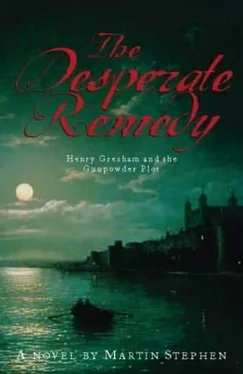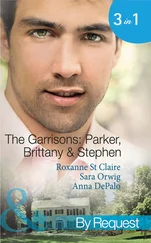Martin Stephen - The Desperate remedy
Здесь есть возможность читать онлайн «Martin Stephen - The Desperate remedy» весь текст электронной книги совершенно бесплатно (целиком полную версию без сокращений). В некоторых случаях можно слушать аудио, скачать через торрент в формате fb2 и присутствует краткое содержание. Жанр: Исторический детектив, на английском языке. Описание произведения, (предисловие) а так же отзывы посетителей доступны на портале библиотеки ЛибКат.
- Название:The Desperate remedy
- Автор:
- Жанр:
- Год:неизвестен
- ISBN:нет данных
- Рейтинг книги:4 / 5. Голосов: 1
-
Избранное:Добавить в избранное
- Отзывы:
-
Ваша оценка:
- 80
- 1
- 2
- 3
- 4
- 5
The Desperate remedy: краткое содержание, описание и аннотация
Предлагаем к чтению аннотацию, описание, краткое содержание или предисловие (зависит от того, что написал сам автор книги «The Desperate remedy»). Если вы не нашли необходимую информацию о книге — напишите в комментариях, мы постараемся отыскать её.
The Desperate remedy — читать онлайн бесплатно полную книгу (весь текст) целиком
Ниже представлен текст книги, разбитый по страницам. Система сохранения места последней прочитанной страницы, позволяет с удобством читать онлайн бесплатно книгу «The Desperate remedy», без необходимости каждый раз заново искать на чём Вы остановились. Поставьте закладку, и сможете в любой момент перейти на страницу, на которой закончили чтение.
Интервал:
Закладка:
'Challenges of all types,' answered Edward, with no sign that he wished to relinquish any of them. 'Firstly, it's a matter of debate whether or not the songs should be performed in a chapel at all. Secondly, singing them seems tantamount to declaring an allegiance to Rome. Thirdly, it's the Devil's own job deciding if they need an organ alongside them.'
'So in summary,' Gresham answered, 'their forthcoming presence in our order of service will result in the musical director being excommunicated for singing secular work in God's chamber, burnt alive for being a Papist and beaten by the Chapel organist for doing him out of a job?'
'Sir Henry,' answered Edward with a mock bow of his head, 'how can I challenge the wit and judgement of one so distinguished?'
'Not at all, if you know what's good for you,' said Gresham cheerfully, draining his glass. He was looking forward to the performance. 'But I wonder you bother with that music. There must be easier pieces.'
'When I meet music in which I hear God's hand,' said Edward sombrely, 'I'll risk the judgement of God's emissaries on earth to hear it played.'
There would be another stir when Edward believed he had the music to his standard, and allowed it to be sung. Accusations would fly back and forth, perhaps even the odd pate would be broken. Gresham ran his eye over the Fellowship of Granville College. One Fellow was a sodomite, making a play at every pretty boy who joined the College. Two others were bedding every serving girl who offered herself. Times being hard, there was no shortage of offers of either kind. Another had the pox, and had been seeing a local quack to little effect. Dipping the genitals in a mess of white vinegar was one of the least painful remedies, and the Fellow in question had been coming to dine for weeks smelling like a barrel of wine that had been allowed to go off in the sun. The newest Fellow was involved in a ruinous lawsuit, chasing an inheritance that an older brother would grab, at dreadful cost to the younger sibling. Two of them were Catholics to the core, two of them fierce Puritans. They sat at opposite ends of the table, and a pair of them had nearly come to blows in a recent public debate.
Opposites attract, thought Henry Gresham, and from the clash of opposites comes new ideas. He gazed contentedly, as much as his restless spirit could ever be content, over his High Table and the college he had refounded. He had no children that he knew of. He seemed destined to be barren. In the meantime, the 135 students and Fellows made a contented burbling noise in the Hall Gresham had built. It could hold two hundred with ease, and would do so before too long. His children? Possibly. His Foundation? Certainly.
The meal over, he had two reasons to retire to his rooms. The first was a letter written in his best handwriting, a letter which had been returned to him a few days previously by a man called Tom Barnes. Its style was faultless, and Gresham could only marvel at the sharp logic and intelligence that shone through the written words. There were only two problems with the letter. Firstly, Gresham had never written it, despite what seemed to be his handwriting and signature, and secondly, its content was sufficient to have him hung, drawn and quartered were it ever to reach any member of the Government. There could be many reasons for the existence of such a forgery, and Gresham needed time at least to eliminate from his mind some of the least likely. When that reading was over, he had his copy of the English translation of Machiavelli's The Prince, obtained from St Paul's for a King's ransom on his last visit to London. He had read it in the original Italian, of course. He was fascinated to compare the original with the translation. It was not to be.
The knock on the door was loud, insistent. Gresham slipped the letter through the gap in the floorboards beneath his feet, and shouted for the visitor to enter.
The courier stank of horse piss and sweat. He had arrived long after supper, his leathers stained with mud up to his armpits. Cambridge was at its most dank and dark, the Fenland mist swirling round the gates of the Colleges like a miasma of plague, waiting to strike. The feeble flicker of candle from the latticed and barred windows in the inner court hardly dented the blackness. The courier had arrived after nightfall. Every tongue would wag in the morning. Gresham called away 'On His Majesty's business', again. Some would snigger, nod knowingly, and gaze down in their tankards as he strode past to his place at table in the morning.
The Porter ushered the courier into Gresham's rooms. They were on the first stairway, built in the fourteenth century. He was Cecil's man, of course, and exuded a sense of menace. Silently he handed a package to Gresham. The Porter hovered over his shoulder, drunk, inquisitive.
'Time you kept your watch, old Walter,' said Gresham to the grizzled old man. 'Who knows how many fresh young virgins are queuing by your gate to test if men are like wine, better when they're old?'
Old Walter grinned, and clumped down the stairs. Gresham could just as easily have kicked him down the stairs, or snarled at him to mind his own damned business. As it was, Gresham saw nothing but an accident of birth in their different station in life. He treated Walter as he treated all people. God persistently refused to treat all people as equal until they proved otherwise, but that was no reason for Gresham to follow suit. As a by-product, old Walter would continue to tell Gresham everything that went on in the College. As far as most of the Fellows and the students were concerned, old Walter, the drunken sot, was invisible. Gresham had been using his sharp eyes and ears for years.
Gresham did not need to ask who the letter was from. There were only a small number of men in England who had couriers willing to ride through the night. The seal on the letter was far more ornate than the content.
Come to London. Immediately.
No formal greeting, no 'To that most beloved servant, Sir Henry Gresham…' Merely a blunt message. Come. Come now.
Gresham sighed. He sighed again as he turned to his purse, took out a small coin, remembered the courier, and chose a larger one. It was accepted. Without thanks, but with the merest nod of the head.
'Tell him yes. Soon.'
The courier nodded again. It was all that was necessary.
Cambridge was a haven. Its conflicts were explicable, its double-and triple-dealing following a strange local logic. True, its townspeople were low and squat, hating the University that gave them their living. A riot was never far away, which was why the Colleges were built like domestic castles, facing inwards into their courts and quadrangles and with a towered Lodge as their entrance. Yet the sense of power those buildings gave was illusory. The power in London was the power of life and, more frequently, death. The power in England was very simple, for all the puffed-out vainglory of the Cambridge Fellows. England's power was the power of the Court, nowadays the Court of King James I of England, erstwhile King James VI of Scotland.
So now Henry Gresham would have to drag himself out of the parochial world of Cambridge, back to the dark, brutal and blasphemous underworld of London, a world only recently rid of yet another outbreak of the plague.
He was rather looking forward to it.
Jack Wright sat in the darkest corner of the room, pushing the remnants of his meal idly around the edge of the wooden platter. The air in the room was greasy, stale. There were eight of them in all, in a room that would have more easily coped with four or five. The Catherine Wheel in Oxford had been chosen for recruiting the newest conspirators. It was safer than London, and Oxford was less full of Government spies than Cambridge. It was as safe as anywhere for a group of men for whom life would never be safe again. Jack could not stop himself looking nervously at the door every minute or so. He saw in his mind the soldiers bursting through it, the yelled commands, the kiss of iron round his wrists as he was led away. He shook his head, as if to clear it of the image. His nervous glance returned to the door. Part of him was trying to listen to his friend, but he had learnt at times to let the impassioned words of Robert Catesby flow over him, as unmarked as a stone in the river with the clear water washing over it.
Читать дальшеИнтервал:
Закладка:
Похожие книги на «The Desperate remedy»
Представляем Вашему вниманию похожие книги на «The Desperate remedy» списком для выбора. Мы отобрали схожую по названию и смыслу литературу в надежде предоставить читателям больше вариантов отыскать новые, интересные, ещё непрочитанные произведения.
Обсуждение, отзывы о книге «The Desperate remedy» и просто собственные мнения читателей. Оставьте ваши комментарии, напишите, что Вы думаете о произведении, его смысле или главных героях. Укажите что конкретно понравилось, а что нет, и почему Вы так считаете.












